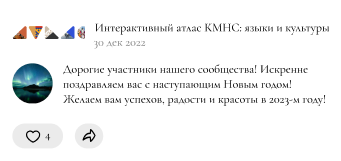Dmitry A. Funk,
Sergey A. Artsemovich
Institute of Ethnology and Anthropology of the RAS
Chelkans.
General information
The last 2020-21 Census recorded 1,314 Chelkans, 344 of them live in cities and 970 live in rural areas. The Altai Republic has the highest number of Chelkans, 1,194 persons (512 men and 682 women). Such a spike in Chelkan population, from 855 in 2002 to 1,314 in 2020-21, is linked to greater numbers of persons who identify as Chelkans and list themselves as Chelkans and not as Altaians.
Currently, Chelkans live mostly in the large settlements in the Altai Republic, in Turochak, Artybash, and Iogach, as well as the city of Gorno-Altaisk, and also in the villages of Kurmach-Baygol, Suranash, Kebezen, Maysky, and Chuika of the Turochak district of the Altai Republic. A relatively modest Chelkan population lives in the Kemerovo Region in settlements close to the Altai Republic’s border. Russian and Soviet ethnographic scholarship follows an established tradition of 400 years and uses clan names to identify smaller Chelkan groups. There is also the name “Lebedin,” or “people of the Lebed” named after the Lebed River where Chelkan communities live. During the Soviet era, various Chelkan groups were recorded as “Altai Chelkans” or “Altaians” in their identification documents and censuses while Chelkans of the Kemerovo Region were usually recorded as “Shors.”
The Chelkan language, along with the Kumandin and the Tubalar ones, is usually classified as a northern dialect of Altaian and, unlike the so-called Southern dialects. Scholars consider it to be part of the Khakas groups of Uighur-Oguz Turkic language along with Shor, Chulym Tatar, and Khakas. Since the 1980s, linguists started to view Chelkan as an independent study subject rather than an Altaian dialect.
The history of studying Chelkans has several stages. The first evidence of Chelkan existence was recorded in the early 19
th
century when Vasily I. Verbitsky and Vasily V. Radlov started their research. From the 1920s-1930s and until the 1990s, Soviet ethnographers, in particular, Leonid P. Potapov, conducted research in that region. Currently, research on Chelkans is flourishing with a new spike of interest in Northern Altaians in general.






















































